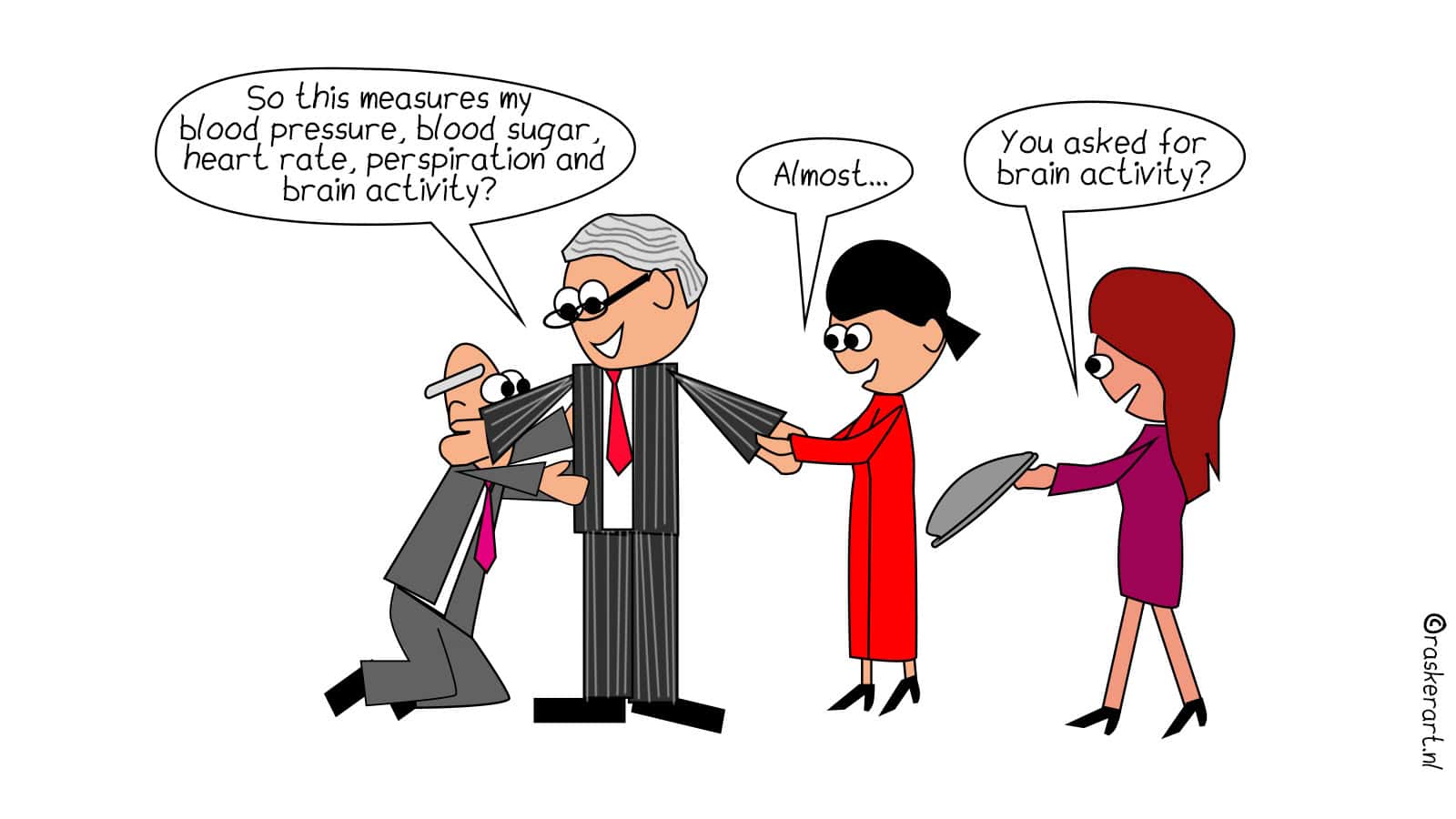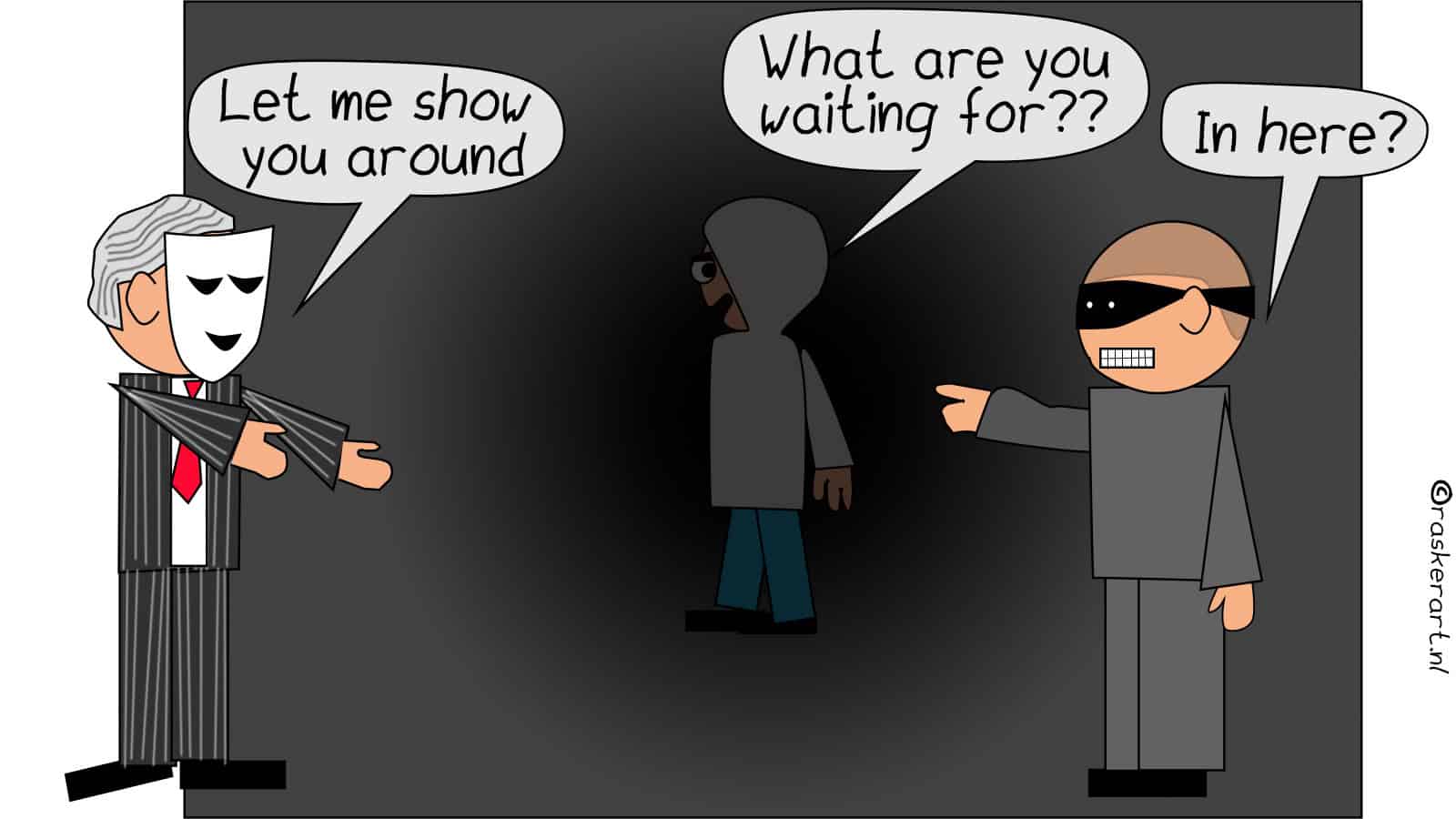
The biggest critic of technology in the Dutch House of Representatives, Kees Verhoeven, will not be returning to parliament after the elections. After more than ten years, he thinks it’s time to call it a day. What has changed in that period? And has Verhoeven’s mission – to devote more attention to digitalization in politics – been accomplished?
Recently he lashed out at Dutch Minister Ferd Grapperhaus, who ‘for the umpteenth time’ proposed to weaken encryption options in chat services. He was also critical of the outgoing cabinet’s plan to give intelligence and security services more freedoms: ‘An erosion of the supervisory powers of the Dutch Intelligence and Security Services Act’ (colloquially known as de sleepwet in Dutch, as in ‘dragnet’). In mid-February, Verhoeven asked parliamentary questions about government agencies, such as the Tax and Customs Administration, police and the Dutch Employee Insurance Agency (UWV), which do not always comply with the Dutch Data Protection Authority (Dutch DPA).
If you add to this the Municipal Health Service (GGD) data leak and the benefits affair, you have to wonder whether more people like Verhoeven are needed in politics. Is his job really done?
“The work is of course never done. But I am very easily replaced. Recently, politicians have become more aware of the impact of technology on our society. The appointment of a Digital Affairs committee is a good example of this.”
But at the same time, Verhoeven is not entirely comfortable with this either. After all, he is not the only ‘IC politician’ who is leaving. “Along with me, other colleagues such as Kathelijne Buitenweg, Chris van Dam, Ronald van Raak and Jan Middendorp are also leaving. Each and every one of them has made a contribution to getting this subject on the agenda. A lot of knowledge is disappearing from the House of Representatives.”
Is that the solution, more MPs who understand technology?
“I myself am not a techie at all, but trained as a geographer. I don’t know how many of these technologies work. That is why it is important that I gather people around me who do know about them. This organization of knowledge is not given enough attention. After all, more knowledge about a subject is always a good thing. Greater knowledge of digital matters can lead to greater investment in research and technology. But more scientifically-minded people and knowledge about technology by themselves are not enough. As a politician, it’s also important to think about the implications. What do rules do?”
To illustrate: SyRi, a program that municipalities and agencies such as the Tax and Customs Administration and the UWV used to track down fraudsters, was banned by the Dutch court last year. According to the judge, the system could have unintended stigmatizing and discriminatory repercussions. “We should not only be critical of how companies handle our data. The government also uses data to keep an eye on its citizens. The government can also be a perpetrator. For example, it can never be the intention that people are mistakenly classified by the Tax Administration as tax avoiders based on their education or the neighborhood where they live.”
So, more scientifically-minded people in politics is not the only solution, says Verhoeven: “Maybe it will help, but it is a much broader issue. A politician must also be able to communicate ideas. Knowing exactly how blockchain or machine learning works is helpful. But it is even more important to know what the impact of these technologies can be. What effect does it have on power? Does it have an impact on the values of our society? And how do these all relate to each other?”
Has much changed on this issue since you’ve been in the House?
“It”s gotten a lot more attention. I feel like the discussion is moving in the other direction. Where before we were cheering for Silicon Valley products, there’s more of an eye for the detrimental aspects nowadays. I think a lot more people, even in politics, are seeing more clearly that technology has an impact. People are aware that it can affect their lives. Students who can’t finish their theses because of ransomware. Or sensitive information from companies that ends up on the street. Also, everyone knows someone in their family who believes in a conspiracy theory due to a barrage of disinformation.”
Technology is not a sexy topic in politics. But neither are other topics, which do get more attention. Why is that?
“Digitalization is a mega topic. A bit like sustainability, because it’s about our future. Only it doesn’t receive enough political attention. That’s due to several reasons. It is a complex story, both technically and organizationally. You’re not just dealing with the government, but with private parties, users and other players. That applies to technologies themselves, but also to infrastructure. In the Netherlands, the roads are largely owned by the government, so it is much easier to make decisions about these. The digital infrastructure is not just about the Netherlands. It’s much, much bigger.”
Bit by bit, this awareness is growing, and at times Verhoeven would like that to go a lot faster: “Especially when you see that citizens are becoming a target of companies and governments. The power wielded by citizens is becoming less and less.”
You propose a minister for Digital Affairs, what should this look like?
“It shouldn’t be the intention that this person is concerned with patient data in digital patient records. Or about the use of Ipads in the classroom. It’s really about the overall picture. What does technology do to the economy, society and what about security and all the ethical issues? The development and roll-out of 5G, for example. That’s a geopolitical story as well as a technical one. It has implications for international relations. This minister would therefore have to weigh up all the different interests, ethical aspects and potential consequences on major digitalization issues.”
Furthermore, Verhoeven thinks it would be good to evaluate the state of digitalization in politics on an annual basis: “Just like the budgets and plans for the coming year are discussed in the general deliberations. A cross-section of what’s going on in the digital field. And to ascertain whether the government is handling citizens’ data properly.”
You say so yourself: digitalization is bigger than the Netherlands. Wouldn’t it be better to tackle this at a European level?
“In Europe, digitization is a key topic. There is a lot of focus on cooperation around innovation and research. Various regulations are currently being drafted to ensure that tech giants do not gain even more power. It is important that citizens are given more control over their data. This sounds very good, of course, but in practice, it is difficult to regulate. Now you have to give permission for the use of your data, but it is totally unclear what happens to it. Whereas this is one of the crucial links in revenue models.”








